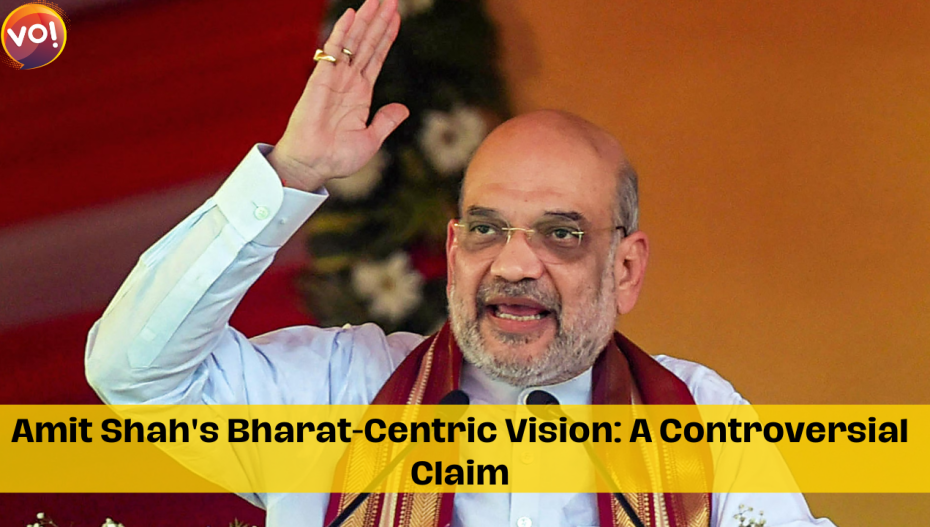Union Home Minister Amit Shah’s recent statement claiming that India’s vision shifted towards becoming “Bharat-centric” only after Prime Minister Narendra Modi took office has sparked both debate and criticism. Let’s analyze the key points of his statement and the potential implications:
Claims:
Pre-Modi Focus: Shah argues that prior to Modi, India’s vision lacked a focus on “Bharat,” implying a neglect of traditional Indian values and culture. He doesn’t explicitly define “Bharat-centric” but suggests it aligns with Hindu nationalist ideology.
BJP’s Vision Change: Shah credits the Bharatiya Janata Party (BJP) for striving to change this vision since 1950, even sacrificing lives in the process. He implies that other parties were not working towards a “Bharat-centric” vision.
Modi’s Achievements: Shah praises Modi’s leadership, citing India’s progress in mobile phone manufacturing, startups, renewable energy, and security as evidence of the “Bharat-centric” vision taking hold.
Abrogation of Article 370: Shah links the removal of Article 370 in 2019 to combating separatism and terrorism, further aligning it with his version of “Bharat-centric” nationalism.
Criticism and Debate:
Historical Accuracy: Critics argue that Shah’s portrayal of pre-Modi India as lacking a “Bharat-centric” vision is factually inaccurate. They point to India’s long history of celebrating its culture and traditions, even after independence.
Exclusionary Nationalism: Critics also express concern about the potentially exclusionary nature of Shah’s vision. Defining “Bharat-centric” in terms of Hindu nationalist ideology could marginalize other religious and cultural groups within India’s diverse population.
Political Agenda: Opponents see Shah’s statement as part of the BJP’s political agenda to consolidate Hindu nationalist support and rewrite history to their own narrative.
Implications:
Increased Social Division: Shah’s statement highlights the ongoing debate about India’s future trajectory. His emphasis on a “Bharat-centric” vision could exacerbate social divisions along religious and cultural lines.
Erosion of Secularism: Critics warn that promoting a narrow definition of “Bharat” might undermine India’s long-standing tradition of secularism and inclusivity.
Potential for Conflict: This rhetoric could also fuel tensions with neighboring countries and minority groups within India.
Amit Shah’s statement has sparked a heated debate about the meaning of “Bharat” and India’s national identity. While his claims require historical scrutiny and raise concerns about potential social exclusion, the discussion highlights the importance of open discourse and inclusivity in shaping India’s future.
A court in Ahmedabad, Gujarat has acquitted Congress MLA Jignesh Mevani and 30 others in a 2017. Read more.












